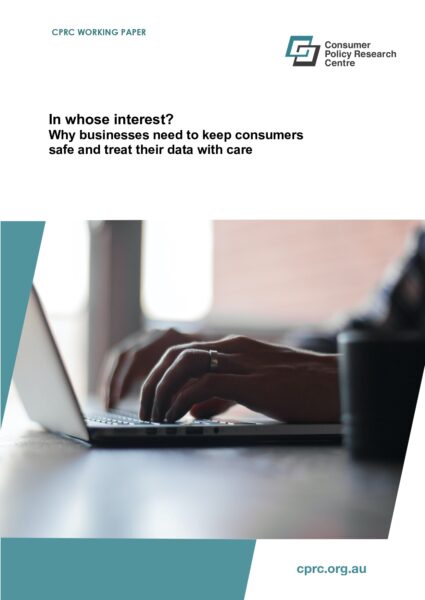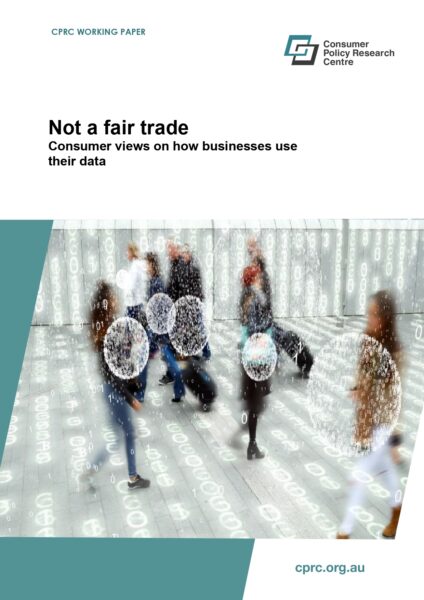October 31, 2023
Faulty cars are far too common and disrupt too many lives. This report delves deep into the repercussions of faulty cars on individuals’ lives, examines the legal pathways available for those seeking remedies and explores the experience of First Nations people.
In Victoria, 54% of people who purchased a car in the last five years experienced what they identified as a major or minor fault with their car – the kinds of issues that are so bad that a dealer or a manufacturer should likely help them with a fix.
This report looks at the impacts of these faulty cars on peoples’ lives and the processes they have to go through to get what they are owed under the law. This research was undertaken by the Consumer Policy Research Centre (CPRC) with support from the Consumer Action Law Centre (CALC), which frequently sees the challenges people face with faulty cars. Our findings show that the consumer protection framework for used car sales is no longer fit for purpose. The current system puts a significant burden on consumers but very little pressure on industry to sell safe cars or do what cars should when they break. We need easier ways for people to exercise their rights.
54% of Victorians who have purchased a car in the last five years experienced what they identified as a major fault, a minor fault or multiple minor faults with a car. Many faults are serious enough that people should have rights to complain under the ACL
36% of faults were discovered in the first three months.
59% of faults were discovered in the first year of ownership
17% of Victorian car owners experienced a major fault that affected their ability to drive their car
55% of people with a faulty car experienced a detrimental non-financial impact, including employment challenges, family impacts, and personal safety impacts
59% of people with faulty cars spent more than $1,000 trying to resolve the problem
24% spent more than $10,000 resolving the problem

of people who could have raised an issue with their dealership did not do so as they believed the process would be too hard, or that they weren’t entitled to a warranty.

of people who did get a repair, replacement or refund from a manufacturer or dealer had difficulty getting this result.

of people who had the dealer fix their car had the same problem recur.

of people who had the dealer fix their car had a new problem arise.
Step one
The Victorian Government needs to establish a dispute resolution body that is accessible, independent, fair, accountable, efficient and effective. We believe that the best existing model we have for external dispute resolution is the ombuds schemes established for a range of consumer-facing services from transport to telecommunications to energy. Ombuds schemes help offer free-to-consumer efficient and fair dispute resolution support.
Step two
The Victorian Government could strengthen dealer licensing obligations to improve the quality of customer care, and to encourage early, proactive resolutions of complaints. This work could commence with a review of the Motor Car Traders Act (1986).
Step three
The Federal Government, in partnership with state and territory governments, needs to amend the Australian Consumer Law (ACL) to ensure that companies that fail to comply with the consumer guarantees face penalties. This will encourage dealers to sell better quality cars, and allow the Australian Competition and Consumer Commission (ACCC) and Consumer Affairs Victoria (CAV) to take meaningful action against dealers that repeatedly fail to comply with consumer guarantees.
Our research highlights a pressing concern: the existing consumer protection measures for used car sales don’t measure up. While consumers face heavy burdens, the industry faces minimal accountability in ensuring car safety or addressing issues post-sale. There’s a pressing need for more accessible avenues for people to exercise their rights.
The area in greatest need of further research and investment is the development of culturally appropriate solutions with and for First Nations people, who face some of the harshest practices from used car dealers. Victoria’s First Nations communities should be empowered to design and develop culturally appropriate solutions to enable them to make informed decisions about their car purchases and, if something goes wrong, to resolve any disputes effectively and efficiently. CPRC is eager to collaborate with government officials, regulators, policy experts, academic scholars, and community leaders to address this gap.
If you are in one the above groups and would like a one-on-one briefing for your organisation contact our team today.
Download Full Report Download Process Map
CPRC thanks staff at Consumer Action Law Centre (CALC), WEstjustice and the Victorian Aboriginal Legal Services (VALS) for their time, expertise and advice. We thank the clients of VALS and CALC for sharing their experiences in this report.

March 16, 2023
Australia’s privacy laws rely on notification and consent as the primary means of protecting consumers. The onus is on consumers to navigate complex privacy protections in a continuously complex digital economy. It is time to consider reforms that hold businesses accountable for how they collect, share and use consumer data. It is time to give regulators the power to pause and assess data practices that are causing or likely to cause consumer harm.

March 29, 2023
This working paper explores consumer sentiment on privacy practices and protections. CPRC conducted a nationally representative survey of 1,000 Australians on their views on how personal information is collected, shared and used by businesses.